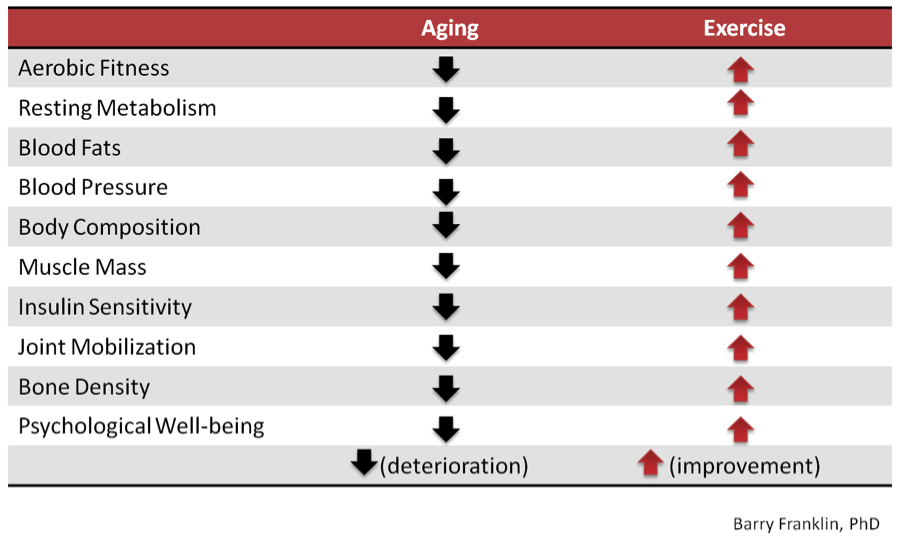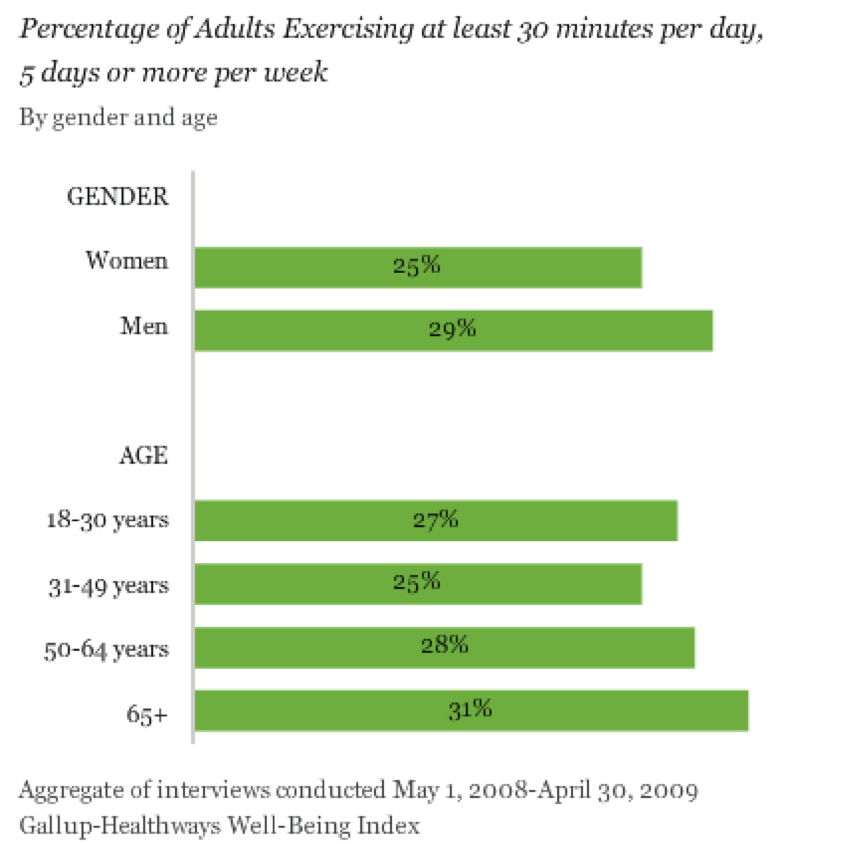Wouldn’t it be great if we always did what we knew was good for us? While knowledge (awareness) is an important step in the behavior change process, simply knowing something - even the benefit of something - isn't enough to cause sustainable change. Have you ever experienced that?
Let me illustrate with a classic example. Here is a fact that almost everyone knows: exercise is good for your health. Regular sufficient exercise does more to promote your health than any other thing you can do, assuming you're getting adequate sleep.
As the table below depicts, exercise reverses or improves all of the health indicators that naturally get worse with age. There is nothing else that you can do that has such a profound affect on your overall health.

At speaking engagements, I’ll ask audience members if they know that exercise is good for their health. Practically everyone raises their hand. They KNOW that exercise is beneficial.
But here is what we also know. As the chart below indicates, the majority of people don’t exercise regularly.

While the study cited is about seven years old, I’ve been following these data for over 20 years, and it hasn’t really changed. If knowing was enough to initiate and sustain change, almost everyone would exercise regularly, right? Clearly, having knowledge does not equal long-term change.
Other examples abound that demonstrate that this is true as well. And it doesn’t seem to matter how much or how little of success you have, how famous you are, how much money you have, or how intelligent you are. Bad behavior initiated through poor decisions crosses all boundaries. You can’t watch the news without hearing about some well-known person who makes a decision that permanently damages his/her reputation and career.
I think it’s safe to say, as this point, that knowledge does not equal change. As we’ve seen, we can know what to do and still not do it. We can know we should exercise and still struggle to do it consistently…or at all. We can know what to eat and still choose the cookie over the carrot. We can know that it’s important to make time for those people who are the most important to us and still not do it.
So the question is, “WHY?” Why do we behave in ways that are not reflective of with what we really value? Why do we behave in ways that are not in our best interest? Why to we engage in behaviors that are self-defeating?
Knowing is not enough; we must apply. Wishing is not enough; we must do.
So the biggest problem we face is acting on what we know.
Simply knowing something - even the benefit of something - isn't enough to cause sustainable change.
How can you address this? I’ll reveal the most effective strategy I know in my next post.
Thrive Leads Shortcode could not be rendered, please check it in Thrive Leads Section!
